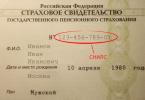The term "repatriation" is not often used in conjunction with Russia - it is usually used in conversations with assimilated Jews who are striving to return to their homeland, or in conversations with Germans. But in recent years, this term has ceased to be the prerogative of exclusively highly developed countries with an enviable level of GDP and a high standard of living. Now this law is also relevant for former citizens of Russia, as well as their descendants. And if former representatives of the Russian Federation who do not have citizenship express a desire to return to their historical homeland in a short time, in addition to the standard methods of obtaining citizenship, they have the opportunity to become a repatriate.
What is repatriation?
Literally, the concept of "repatriation" is translated as "return to native land." In each state, this process has a separate name in the titular national language, so be prepared to meet such terms as "aliya" and "nurly kosh". This program is directly related to such a concept as the "right of return", which is one of the pillars of international law. The provisions of this legislative principle give the right to every person to return to his native state. Anyone can see for themselves how closely the main ideas of the term “repatriation” are intertwined with the right to return by studying the Universal Declaration of Human Rights and the International Covenant on Civil and Political Rights.
Typically, the concept of repatriation is applied to such categories of people as forcibly displaced individuals, prisoners of war, refugees and other emigrants. In the Russian Federation, this program, its conditions and terms depend on the subject of the Russian Federation, and not every region participates in the program.
The law on repatriation and the duration of this law

The right to return is usually described in the current legislation of each country, but in addition, it can be obtained through the law on repatriation. This bill was adopted in Russia not so long ago - the Russians first heard about it in 2006. This bill did not make a big splash, since it was not fully developed and was aimed primarily in favor of the Russian economy and to receive returns in the form of taxes.
Many foreign citizens are often interested in how long this law is designed for. In 2012, this law received the status of an indefinite one, so repatriation can become a way to return to Russia even today. The Government of the Russian Federation is more than ever interested in attracting labor resources to Russia, especially qualified personnel, and therefore does not limit the duration of the law.
Prerequisites for the approval of the bill
So how did the law to attract repatriates into the ranks of citizens come about, and how did return to their homeland first appear on the agenda at the top of the government? In 2012, the topic of bureaucracy in obtaining Russian citizenship became more relevant than ever. One of the main priorities of the government was the removal of unnecessary paperwork when obtaining Russian citizenship, and then the idea arose that repatriates have a primary right to the status of a citizen and can significantly help the Russian economy and the development of the country as a whole.

Free legal support by phone:
8 (800) 775-65-04 (call is free)
The working group on migration decided that since former citizens of the RSFSR did not write any applications for renunciation of citizenship and lost the status of a citizen due to circumstances beyond their control, it is worth changing the rules for acquiring citizenship for them.
“We propose that citizens of the RSFSR not acquire, but restore Russian citizenship”, - said the chairman of this working group, Evgeny Bobrov.
Aliya was supposed to help not only former representatives of the RSFSR, but also other representatives of Russian culture, as noted by the participants in the working group on. Repatriation did not imply a simple reduction in bureaucratic costs - the government sought to create all favorable conditions for program participants so that repatriates were guaranteed to receive housing and jobs.
Who is the bill for?

In other words, repatriation to the Russian Federation is aimed at assisting compatriots who are abroad in returning to their homeland. It is worth considering separately the concept of "compatriots". These include:
- Former representatives of the USSR, located on the territory of the countries of the former Soviet Union;
- Citizens of Russia residing on the territory of other countries;
- People who migrated from the Russian Empire, Russia during the February Revolution and the RSFSR, who later became subjects of other countries or stateless.




